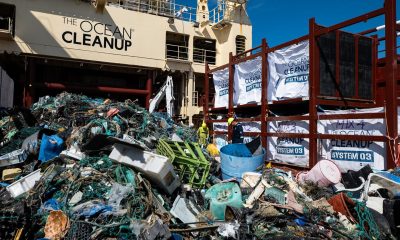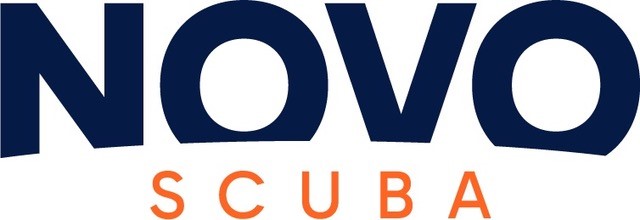News
Microplastics on the menu of Manta Rays and Whale Sharks
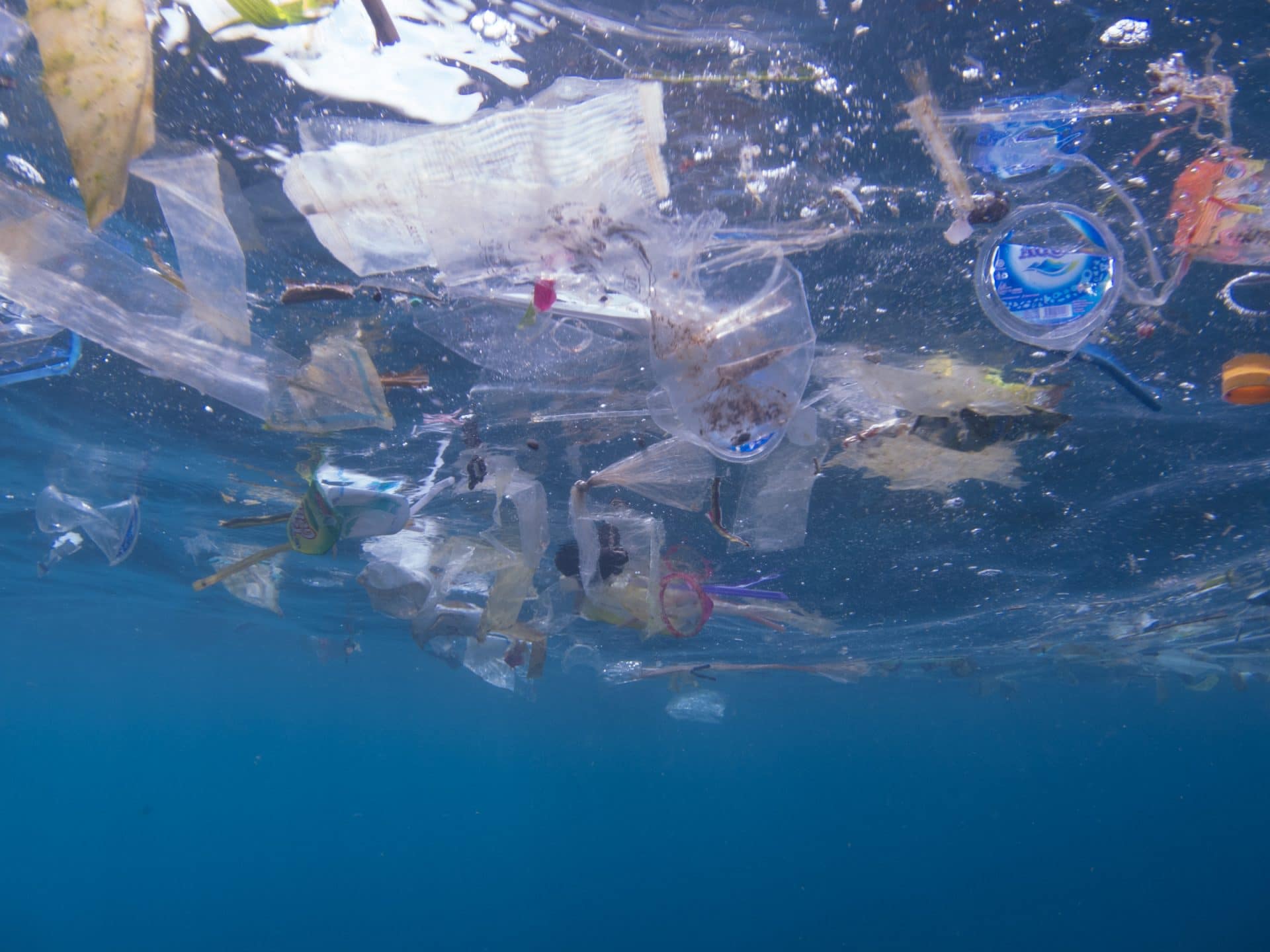
Plastics pollute Indonesian feeding grounds of plankton-feeding ocean giants…
Plastic pollution has a tremendous impact on marine life – and reef manta rays and whale sharks are not spared from it. These large filter-feeders swallow hundreds to thousands of cubic meters of plankton-filled water every day, and with it, tiny plastic pieces from broken down carrier bags and single-use packaging, a new study has found.
Marine biologists from the Marine Megafauna Foundation, Murdoch University (Australia) and Udayana University (Indonesia), estimated the amount of plastic particles present in the waters off Nusa Penida (Bali), Komodo National Park and East Java in Indonesia and, based on that, calculated how many pieces reef manta rays and whale sharks might be ingesting. These shark species sieve nutrient-rich water through their gills as they swim.
As manta rays and whale sharks spend a lot of time feeding in inshore surface waters where trash commonly aggregates, the researchers used a plankton net to trawl for plastics in the top 50 cm of the water column. They also counted any debris visible at the surface from the boat.
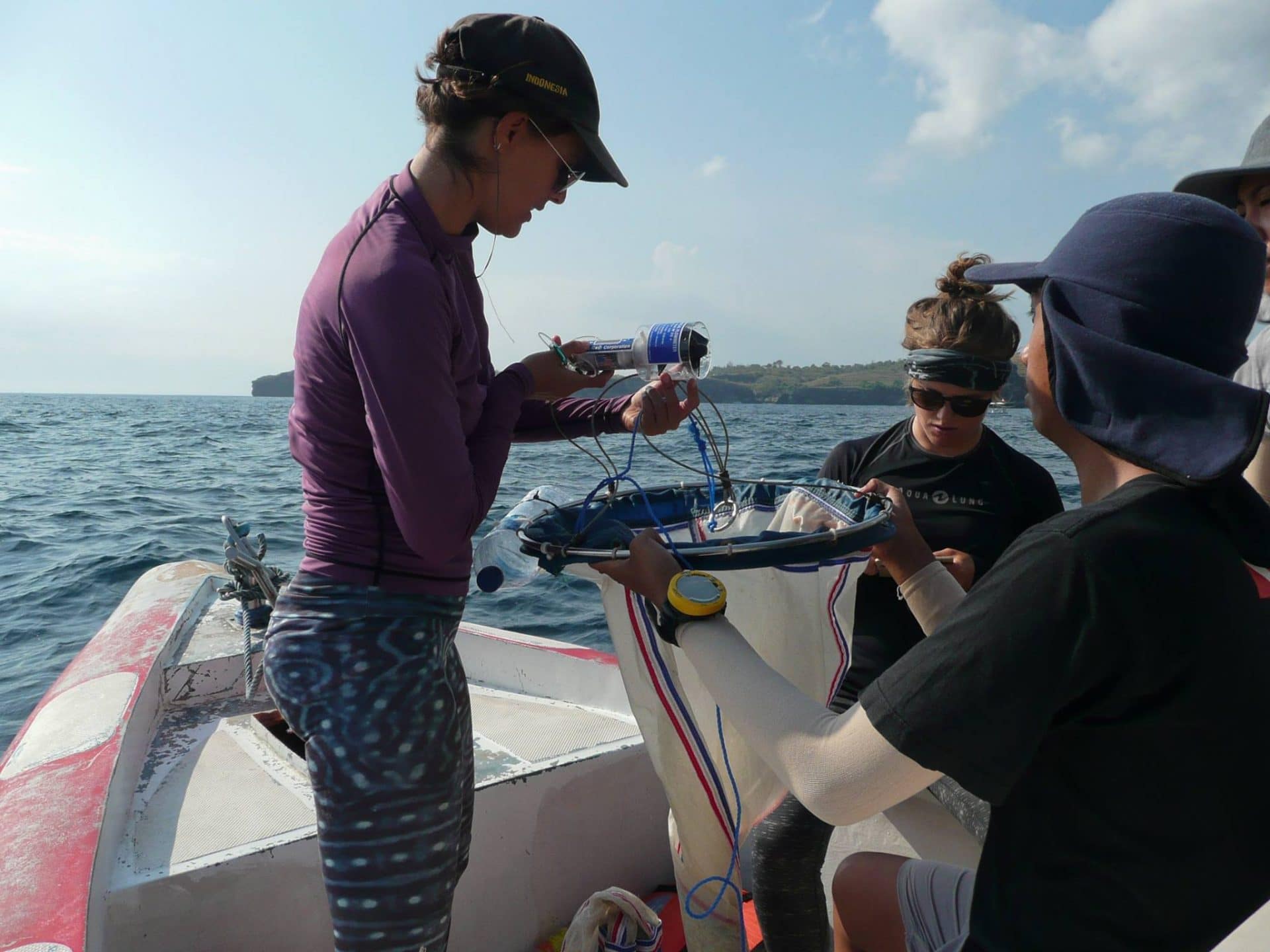
Elitza Germanov on boat – Marine Megafauna Foundation
Lead author Elitza Germanov, a researcher at the Marine Megafauna Foundation and PhD candidate at Murdoch University, said: “With time, plastics break down into smaller pieces called microplastics that large marine filter feeders might accidentally scoop up because they float among their prey.”
“Manta rays and whale sharks can ingest microplastics directly from polluted water or indirectly through the contaminated plankton they feed on,” she adds.
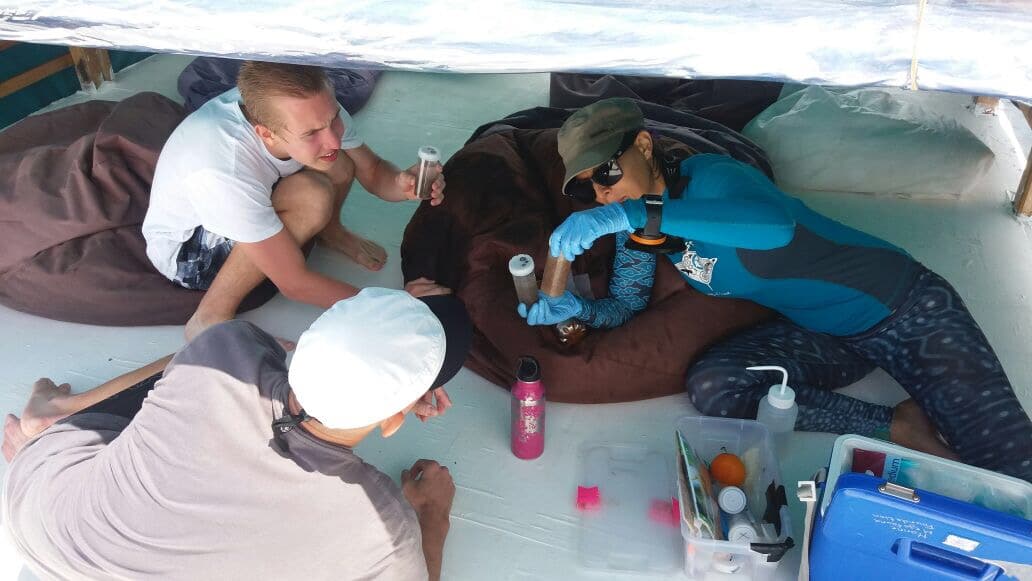
Plankton microplastics sampling – Marine Megafauna Foundation
The collaborative study, which is published today in the journal Frontiers in Marine Science, found that reef manta rays may ingest up to 63 pieces of plastic per hour of feeding in Nusa Penida and Komodo National Park. Whale sharks, which seasonally aggregate in Java, could be ingesting up to 137 pieces per hour.
Thin and bendable films from single-use bags and wrappers as well as hard fragments were the most prevalent plastics (over 50% combined). Of all plastic recorded, around 80% were small pieces of less than 5mm, so-called microplastics.
Manta ray poo and vomit also tested positive for plastics, which means that plastics are easily ingested when filter feeding and likely expose the animals to toxic chemicals and pollutants found in plastics while in their digestive system. These toxic substances can accumulate over decades and alter the hormones that regulate an animal’s metabolism, growth and development, and reproductive functions. Larger plastic particles can block nutrient absorption and cause damage to the digestive tract of animals.
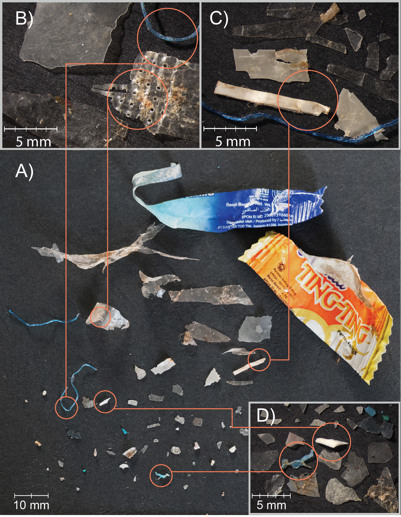
Microplastics in manta poo (c) Elitza Germanov et al 2019
Neil Loneragan, Professor of Marine Ecology and Conservation at Murdoch University said: “It is difficult to assess how much plastic manta rays and whale sharks actually ingest because conventional methods used to study animal diets, such as stomach analysis, are unsuitable for threatened species like these.”
Manta rays and whale sharks are globally threatened species facing extreme pressures from overfishing. They are often caught incidentally in nets or become entangled in fishing lines.

Manta with plastic in Indonesia – Elitza Germanov, Marine Megafauna Foundation
Indonesia is currently ranked as the second worst plastic polluter in the world and many neighbouring countries within the Coral Triangle are among the top 10. This study found that plastic abundance was up to 44 times higher during the rainy season, with the largest seasonal effect observed in Nusa Penida.
Dr. I. Gede Hedrawan, an Indonesian plastics researcher from Bali’s Udayana University and an author on this study, said: “The seasonal variability in plastic pollution shows what a difference it would make to clean up river beds before the rainy season begins.” Local authorities could also prohibit any waste disposal in areas around water sources.
“We welcome Bali’s recent ban on single-use plastic bags, straws and take away containers, although the law is yet to reach its full effect and spread to smaller businesses,” he says.
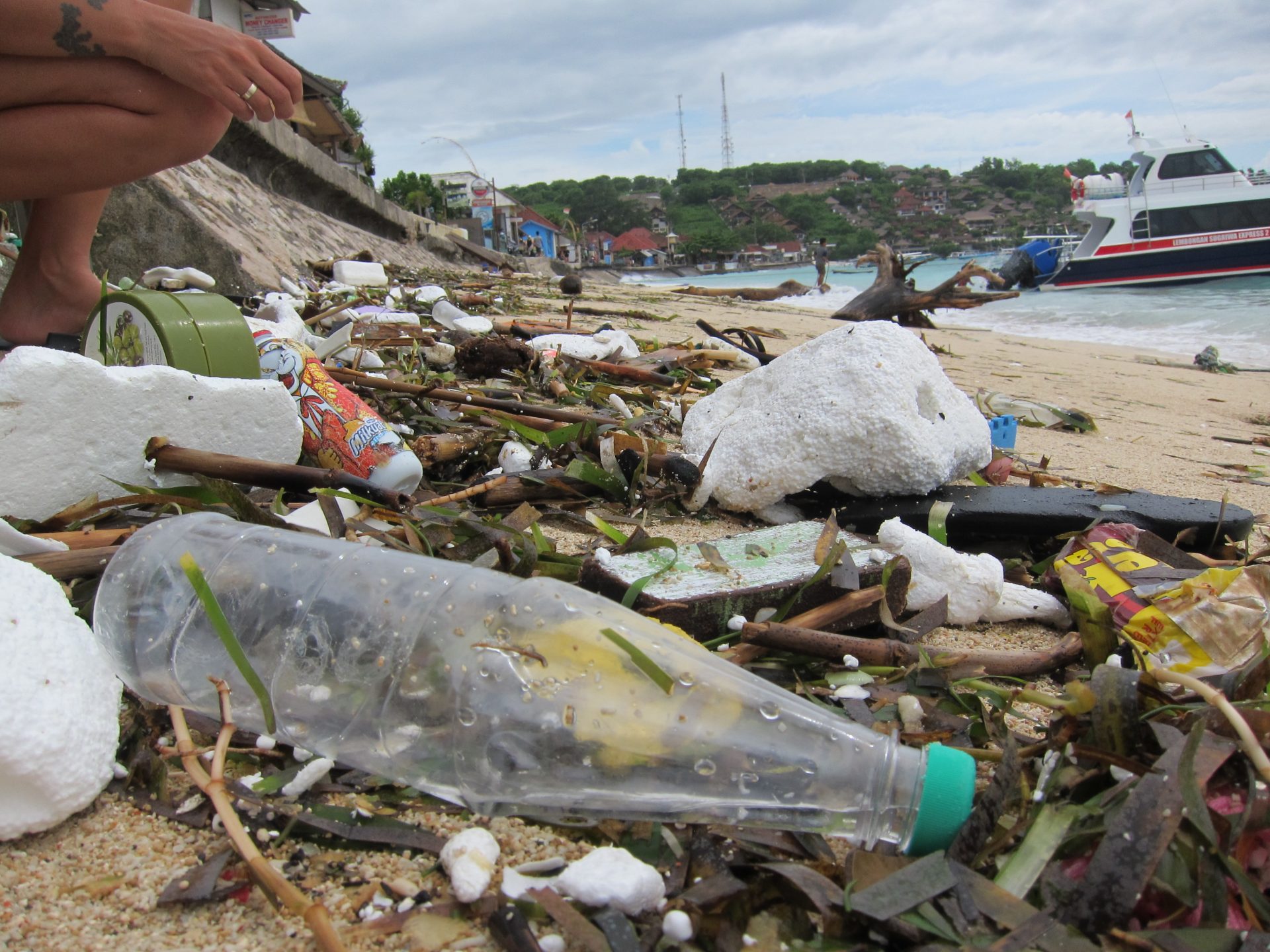
Trash on beach Indonesia – Elitza Germanov, Marine Megafauna Foundation
It is vital to understand the effects of microplastic pollution on ocean giants since nearly half of the mobulid rays, two thirds of filter-feeding sharks and over one quarter of baleen whales are listed by the IUCN as globally threatened species and are prioritized for conservation. Previous studies found that baleen whales may swallow microplastic particles in the thousands every day.
“We now know that, through exposure to toxic substances, plastic contamination has the potential to further reduce the population numbers of these threatened animals because they reproduce slowly and have few offspring throughout their lives,” Germanov concluded.
As plastic production is projected to increase globally, future research should focus on coastal regions where pollution overlaps with the critical feeding and breeding grounds of these ocean giants. Many areas such as the Nusa Penida Marine Protected Area and Komodo National Park are biodiversity hotspots with significant marine tourism.
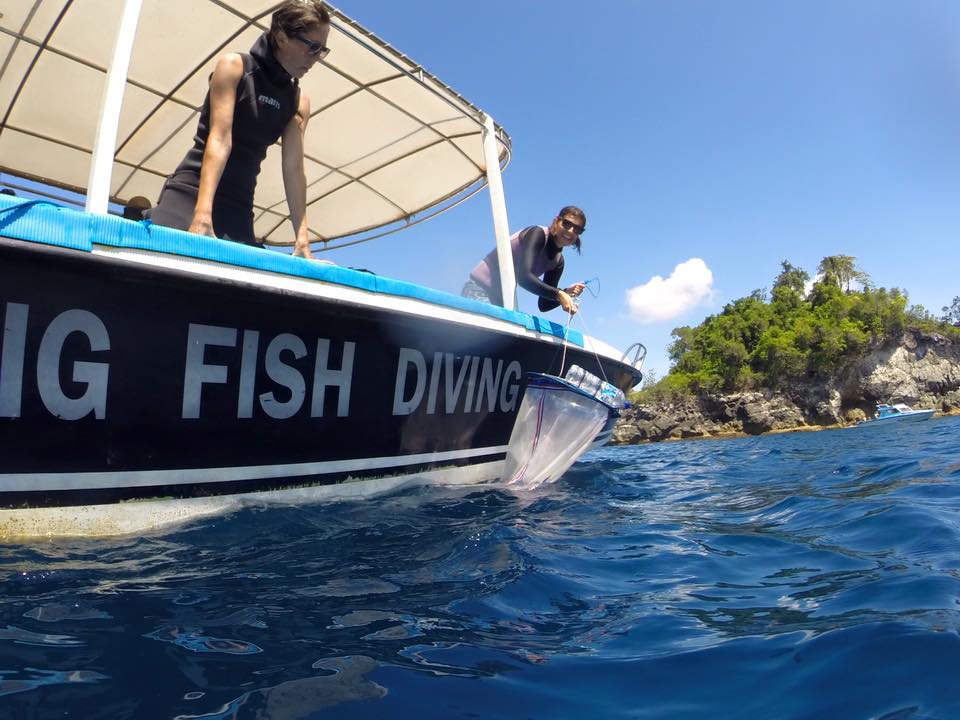
Trawling microplastic – Marine Megafauna Foundation
The field research was supported by the Ocean Park Conservation Foundation, PADI Foundation, Foundation FortUna, Mantahari Oceancare, Arenui Boutique Liveaboard, Current Junkies Liveaboard, Happy Days yacht, Scuba Junkie Komodo, and Wunderpus Liveaboard, and was carried out under a RisTek-Dikti (Indonesian Ministry of Research) permit.
The study by Elitza Germanov et al., titled ‘Microplastics on the menu: Plastics pollute Indonesian manta ray and whale shark feeding grounds’ is published in the journal Frontiers in Marine Science on 19 November 2019 and is available here: https://www.frontiersin.org/articles/10.3389/fmars.2019.00679/full
For further details, please see www.marinemegafauna.org or follow them on Twitter, Facebook and Instagram. For information about regional projects, follow the Marine Megafauna Foundation’s Southeast Asia Facebook page.
Blogs
EXCLUSIVE: Jeff Goodman interviews Mark Spiers, CEO of New Scuba Diving Training Agency NovoScuba
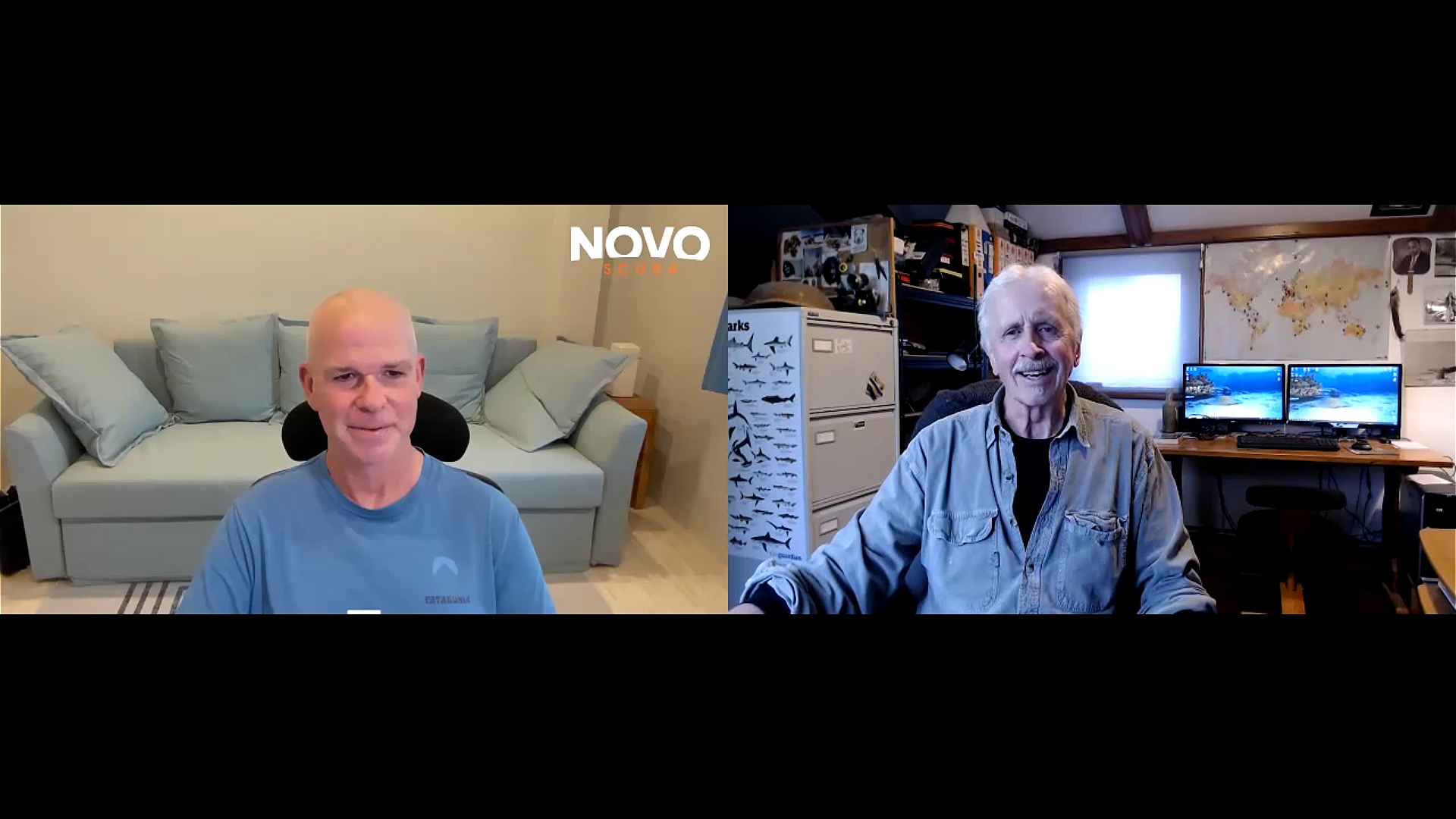
In a video recorded exclusively for Scubaverse.com, Jeff Goodman interviews Mark Spiers, CEO of new scuba diving training agency NovoScuba.
Find out more about NovoScuba at www.novoscuba.com.
News
Charting New Waters; NovoScuba Goes Global with the Launch of their Revolutionary Dive Training Agency!
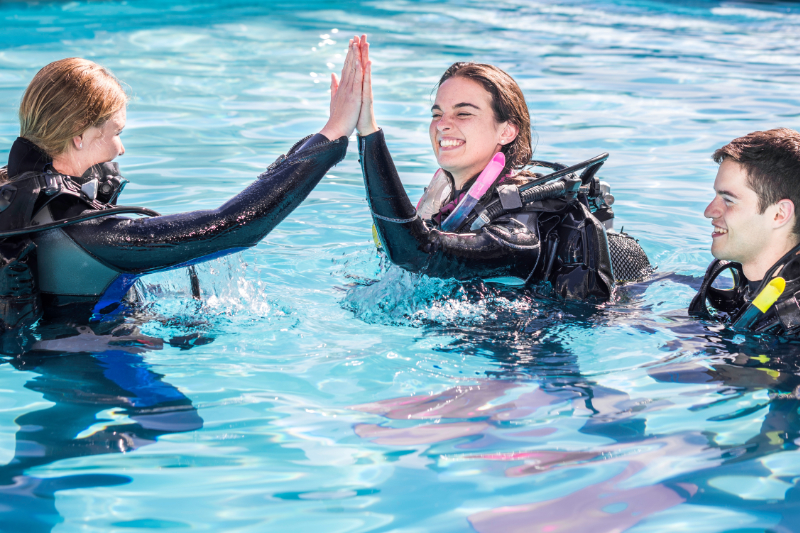
Discover a New Era of Dive Education: NovoScuba Brings Innovation to the Surface! Fully ISO Certified and Equipped with Cutting-Edge Technology.
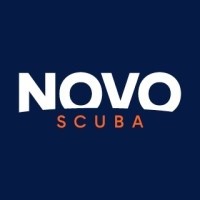 With a combined experience spanning over a century in the diving industry, a team of accomplished dive store owners, managers, and professionals unveils NovoScuba, a ground-breaking dive training agency poised to redefine the benchmarks of underwater education. Launching in May 2024, NovoScuba promises a revolutionary approach to dive training. Their vision is to make diving accessible to everyone, share success within the dive community and emphasise positive interactions with the planet.
With a combined experience spanning over a century in the diving industry, a team of accomplished dive store owners, managers, and professionals unveils NovoScuba, a ground-breaking dive training agency poised to redefine the benchmarks of underwater education. Launching in May 2024, NovoScuba promises a revolutionary approach to dive training. Their vision is to make diving accessible to everyone, share success within the dive community and emphasise positive interactions with the planet.
NovoScuba’s global debut marks a significant milestone in the dive industry. Driven by a vision to challenge convention and harness the power of technology, NovoScuba aims to revolutionise the dive training landscape through its innovative business model, which is digitally native, making it the most technologically advanced dive training agency to date.
“We recognised the need for change in the dive training industry and saw an opportunity to leverage technology, and redefine existing business models to create something truly innovative,” said Mark Spiers, CEO of NovoScuba.
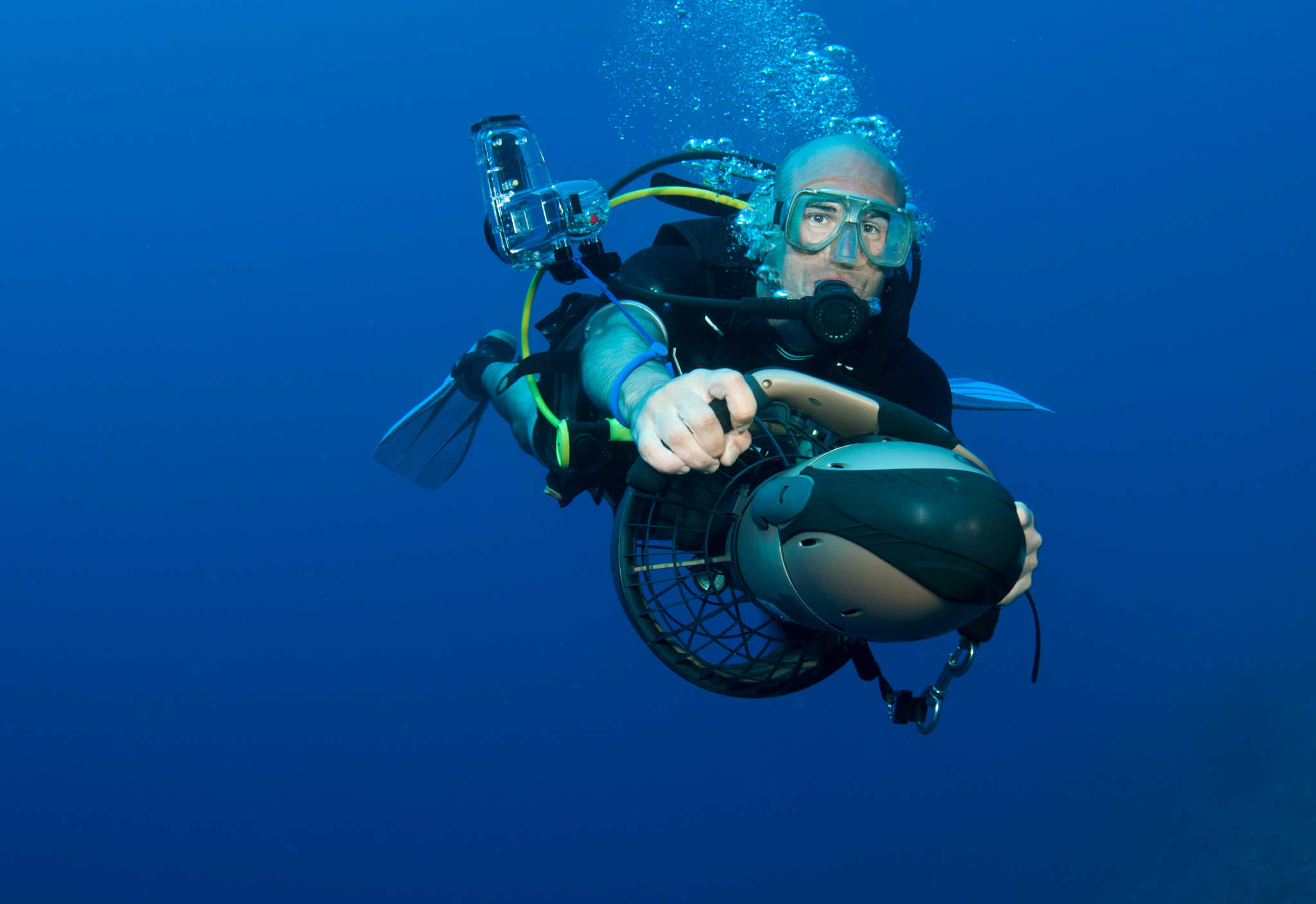
NovoScuba’s platform offers state of the art training programmes ranging from introductory up to professional diving, including various specialties. All programmes meet international standards and ISO certifications are in place. This commitment to shared success, accessibility and positive results for the planet, all at a cost effective and affordable level, is what will make NovoScuba stand out.
“Our deep understanding of traditional pain points for the industry, combined with our digitally native approach positions NovoScuba as a game-changer in dive education. Offering unparalleled initiatives such as student subscription, open access to all course materials, pay as you certify, no stock required, monthly membership payments, payment in local currencies, one-click certifications, and membership freezing, NovoScuba is set to redefine the industry. Available in 13 languages, at launch, the NovoScuba courses are written for the modern divers, with a focus on up-to-date content, interactive learning, and an engaging platform,” Mark Spiers concluded.
NovoScuba is challenging a change in the industry, redefining established traditional systems, and ushering in a new standard of excellence, support, and partnership. Their collaborations with dive stores, pros and underwater enthusiasts won’t demand exclusivity, prioritising earned loyalty, and an understanding that their Member’s success is key to their own.
NovoScuba
Diving Redefined.
-

 News3 months ago
News3 months agoCapturing Critters in Lembeh Underwater Photography Workshop 2024: Event Roundup
-

 Marine Life & Conservation Blogs3 months ago
Marine Life & Conservation Blogs3 months agoCreature Feature: Swell Sharks
-

 Blogs2 months ago
Blogs2 months agoMurex Resorts: Passport to Paradise!
-

 Blogs2 months ago
Blogs2 months agoDiver Discovering Whale Skeletons Beneath Ice Judged World’s Best Underwater Photograph
-

 Gear Reviews3 weeks ago
Gear Reviews3 weeks agoGEAR REVIEW – Revolutionising Diving Comfort: The Sharkskin T2 Chillproof Suit
-

 Gear Reviews3 months ago
Gear Reviews3 months agoGear Review: Oceanic+ Dive Housing for iPhone
-

 Marine Life & Conservation2 months ago
Marine Life & Conservation2 months agoSave the Manatee Club launches brand new webcams at Silver Springs State Park, Florida
-

 News2 months ago
News2 months agoPADI Teams Up with Wellness Brand Neuro to Drive Ocean Change and Create a Blue State of Mind



